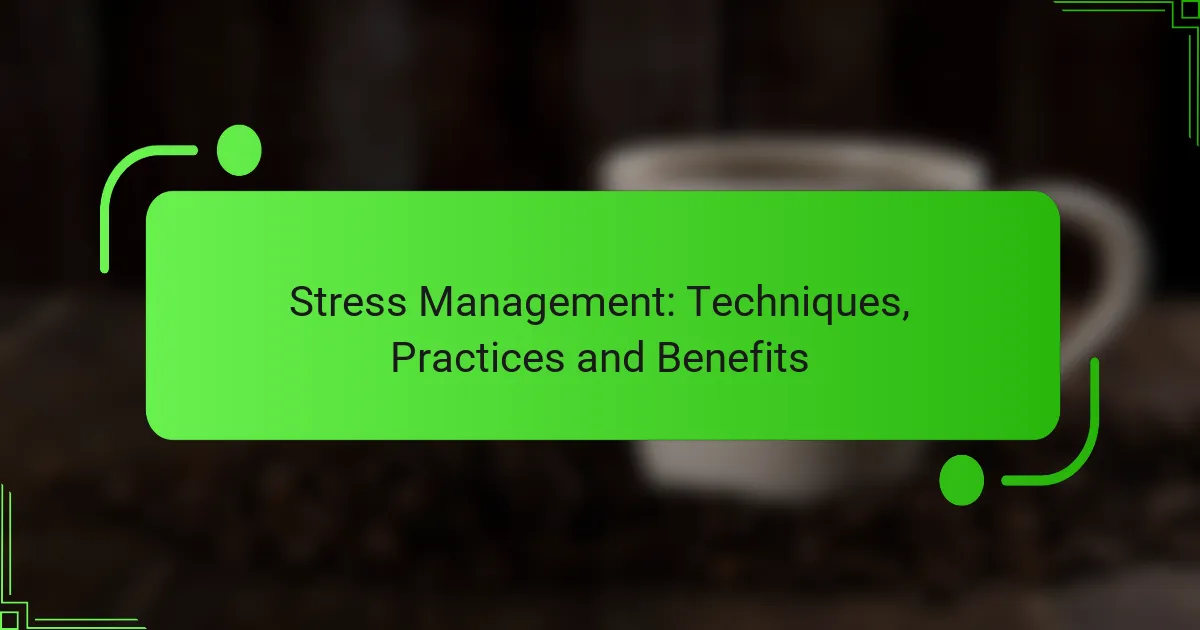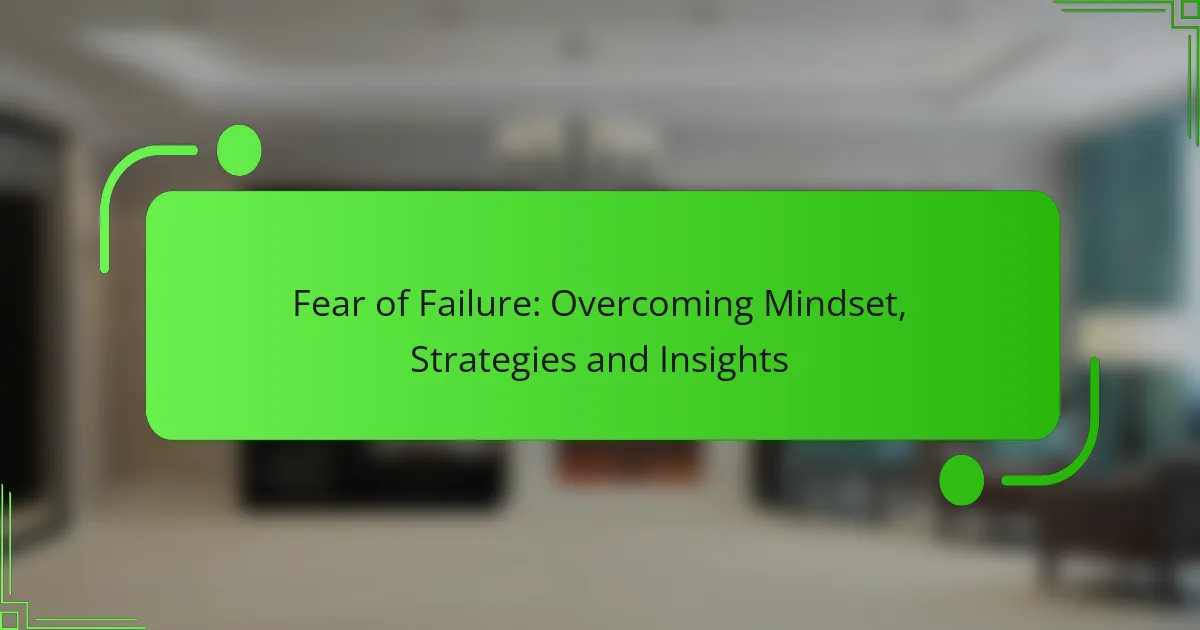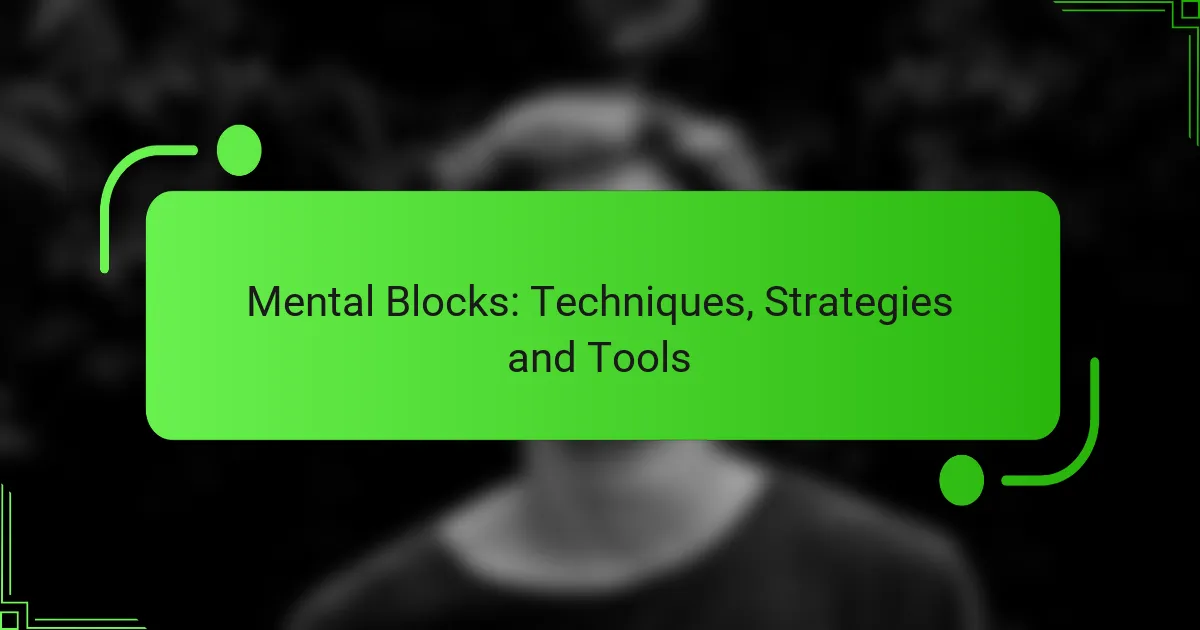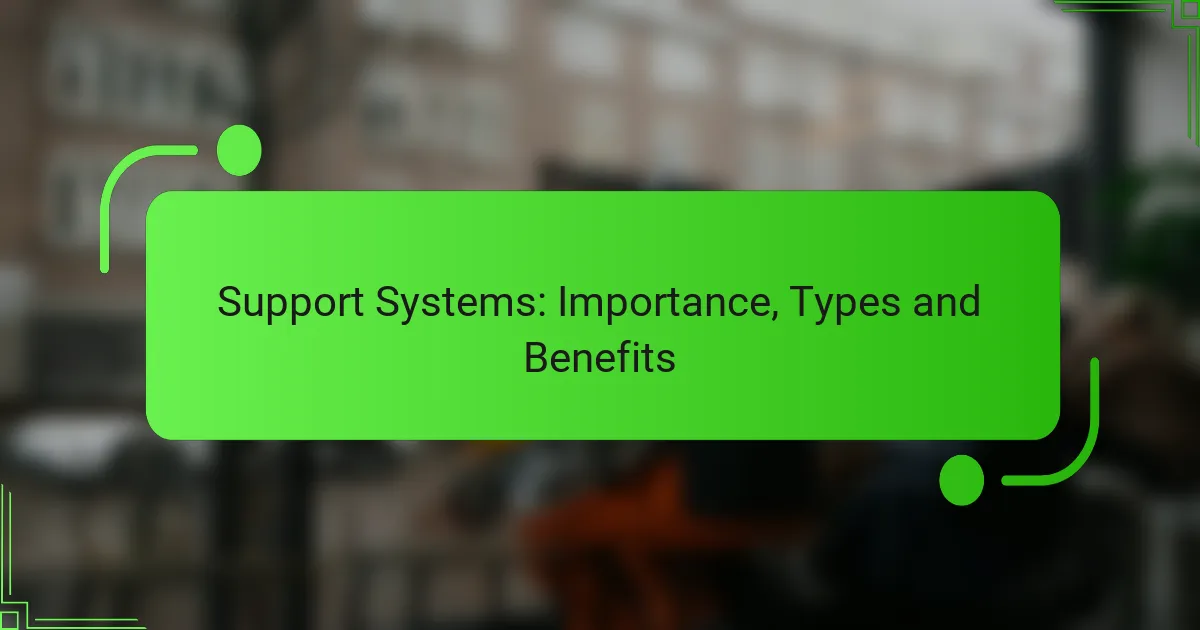Stress management is essential for maintaining overall well-being and improving mental health. By integrating techniques such as mindfulness, exercise, and effective time management into daily routines, individuals can significantly reduce stress levels and enhance their coping skills. Embracing these practices not only fosters relaxation but also promotes a greater sense of control in everyday life.
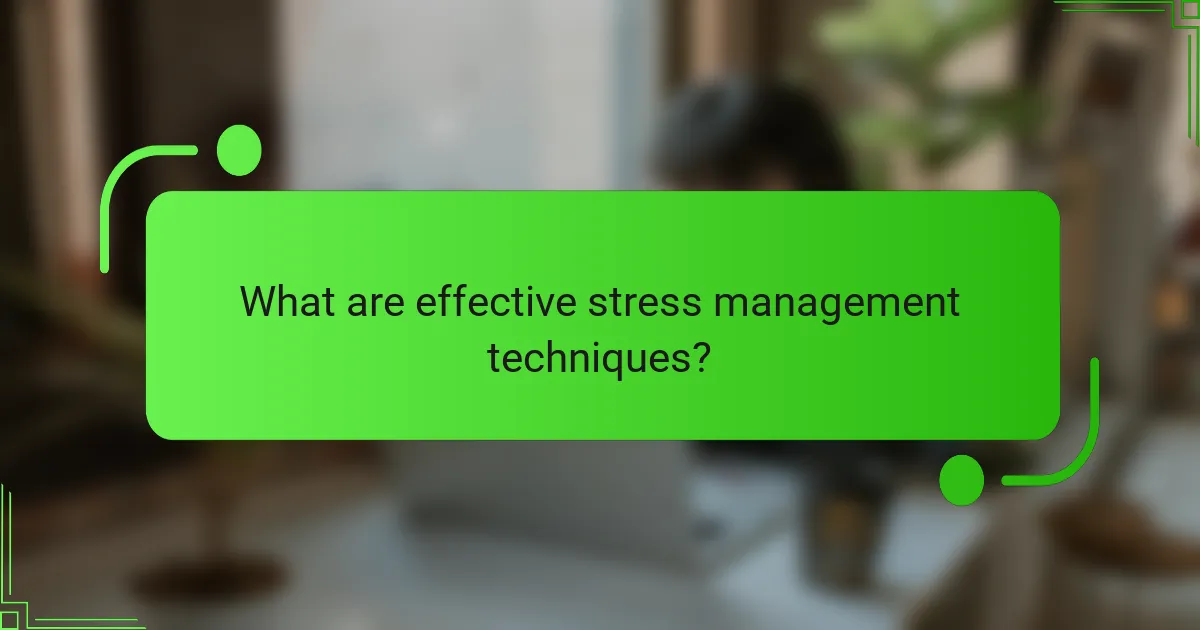
What are effective stress management techniques?
Effective stress management techniques help individuals reduce stress levels and improve overall well-being. These methods can be easily integrated into daily routines to promote relaxation and enhance coping skills.
Mindfulness meditation
Mindfulness meditation involves focusing on the present moment while calmly acknowledging and accepting one’s feelings, thoughts, and bodily sensations. This practice can help reduce anxiety and improve emotional regulation.
To start, find a quiet space, sit comfortably, and focus on your breath. Aim for sessions lasting 5 to 20 minutes, gradually increasing the duration as you become more comfortable with the practice.
Deep breathing exercises
Deep breathing exercises are simple yet effective techniques that promote relaxation by slowing the heart rate and lowering blood pressure. These exercises can be done anywhere and only take a few minutes.
One common method is the 4-7-8 technique: inhale through your nose for 4 seconds, hold your breath for 7 seconds, and exhale slowly through your mouth for 8 seconds. Repeat this cycle several times to feel more centered.
Progressive muscle relaxation
Progressive muscle relaxation (PMR) is a technique that involves tensing and relaxing different muscle groups in the body to reduce physical tension and stress. This method can enhance awareness of bodily sensations and promote relaxation.
To practice PMR, start at your toes and work your way up to your head, tensing each muscle group for about 5 seconds before releasing. Spend a few moments focusing on the difference between tension and relaxation in each area.
Yoga and physical activity
Yoga and physical activity are effective stress management techniques that combine movement, breath control, and mindfulness. Engaging in regular exercise can significantly reduce stress levels and improve mood.
Consider incorporating activities like yoga, walking, or cycling into your routine. Aim for at least 150 minutes of moderate-intensity exercise per week, which can be broken down into manageable sessions.
Time management strategies
Time management strategies help individuals prioritize tasks and allocate their time effectively, reducing feelings of overwhelm and stress. Implementing these techniques can lead to increased productivity and a better work-life balance.
Start by creating a daily or weekly planner to outline tasks and deadlines. Use tools like the Eisenhower Matrix to prioritize tasks based on urgency and importance, ensuring that you focus on what truly matters.
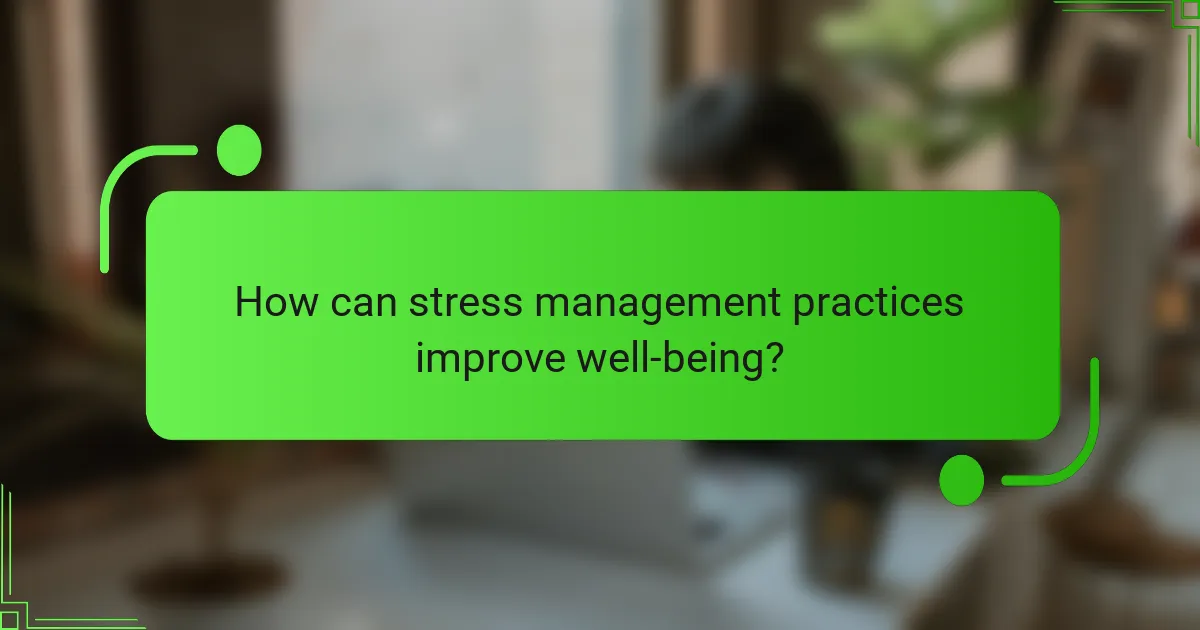
How can stress management practices improve well-being?
Stress management practices can significantly enhance well-being by reducing negative emotions and promoting a sense of control. By incorporating techniques such as mindfulness, exercise, and proper time management, individuals can experience improved mental and physical health.
Reduces anxiety levels
Effective stress management techniques help lower anxiety levels by promoting relaxation and mindfulness. Practices like deep breathing, meditation, and yoga can calm the mind, making it easier to cope with daily stressors. Regular engagement in these activities can lead to a noticeable decrease in anxiety symptoms over time.
To maximize benefits, aim to practice these techniques for at least 10-20 minutes daily. Consistency is key, as even short sessions can contribute to long-term anxiety reduction.
Enhances emotional resilience
Stress management practices enhance emotional resilience by equipping individuals with coping strategies for challenging situations. Techniques such as cognitive restructuring and positive self-talk can help reframe negative thoughts, fostering a more optimistic outlook. This shift in mindset allows individuals to bounce back more effectively from setbacks.
Consider journaling to reflect on experiences and emotions. This practice can help identify patterns and develop healthier responses to stressors, ultimately strengthening emotional resilience.
Improves sleep quality
Incorporating stress management techniques can lead to better sleep quality by reducing racing thoughts and promoting relaxation before bedtime. Practices like establishing a calming bedtime routine, limiting screen time, and engaging in gentle stretching can signal the body that it is time to wind down.
Aim for 7-9 hours of sleep each night, and consider using relaxation techniques such as progressive muscle relaxation or guided imagery to help ease into sleep. Avoid stimulants like caffeine in the hours leading up to bedtime.
Boosts overall health
Stress management practices contribute to overall health by reducing the risk of stress-related illnesses, such as heart disease and hypertension. Regular physical activity, a balanced diet, and adequate rest are essential components of a healthy lifestyle that stress management can support.
Engaging in activities that promote well-being, such as socializing, hobbies, or volunteering, can further enhance health outcomes. Aim to incorporate a variety of stress-relief methods to create a holistic approach to health and well-being.
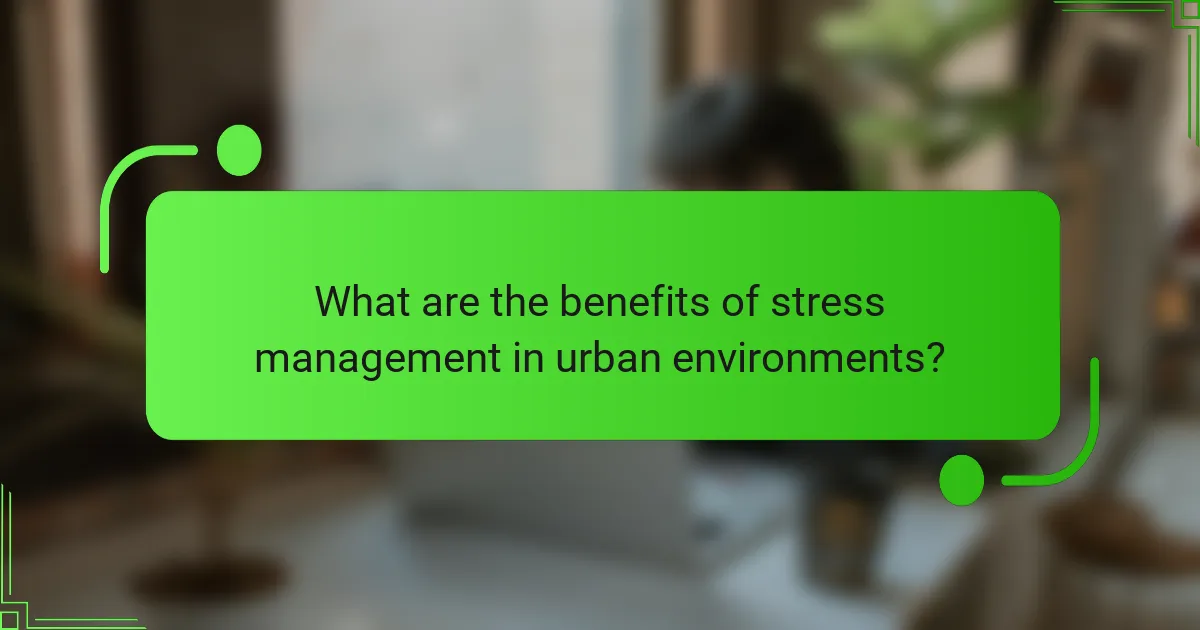
What are the benefits of stress management in urban environments?
Effective stress management in urban settings can significantly enhance overall well-being, leading to improved mental health and productivity. By adopting various techniques, individuals can navigate the unique challenges of city life more effectively.
Increased productivity
Managing stress effectively can lead to increased productivity, especially in fast-paced urban environments. When individuals employ stress reduction techniques, such as mindfulness or time management, they often find themselves better focused and more efficient in their tasks.
For instance, taking short breaks to practice deep breathing or meditation can refresh the mind, allowing for clearer thinking and quicker decision-making. This can result in completing tasks faster and with higher quality, which is crucial in competitive urban workplaces.
Better work-life balance
Stress management plays a vital role in achieving a better work-life balance, particularly in cities where the lines between personal and professional life can blur. By setting boundaries and prioritizing self-care, individuals can ensure they allocate time for both work responsibilities and personal interests.
Techniques such as scheduling downtime or engaging in hobbies can help prevent burnout. For example, dedicating weekends to family activities or personal projects can rejuvenate individuals, making them more effective during the workweek.
Enhanced social connections
Effective stress management can lead to enhanced social connections, which are essential in urban environments where social isolation can be common. By reducing stress, individuals are more likely to engage in social activities and build meaningful relationships.
Participating in community events or joining local clubs can foster connections with others, creating a support network that further alleviates stress. Regular social interactions can also provide emotional support, making it easier to cope with urban challenges.
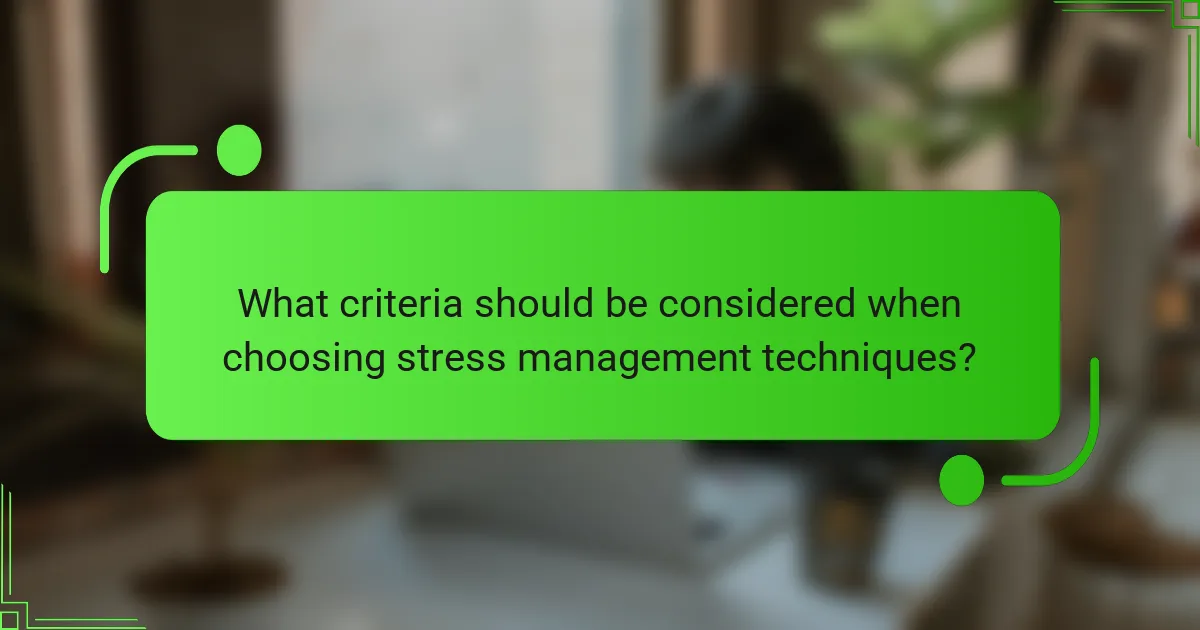
What criteria should be considered when choosing stress management techniques?
When selecting stress management techniques, consider personal preferences, time availability, and access to resources. These factors influence the effectiveness and sustainability of the chosen methods, ensuring they fit seamlessly into your lifestyle.
Personal preferences
Your personal preferences play a crucial role in choosing stress management techniques. Techniques that resonate with your interests, such as yoga, meditation, or journaling, are more likely to be effective because you are more inclined to practice them regularly.
Consider experimenting with different methods to find what you enjoy. For instance, if you prefer physical activity, activities like running or dancing may be more beneficial than passive techniques like deep breathing.
Time availability
Time availability is essential when selecting stress management techniques. Some methods, like mindfulness meditation, can be practiced in just a few minutes, while others, such as attending a weekly yoga class, require more time commitment.
Evaluate your daily schedule to determine how much time you can realistically dedicate to stress management. If you have limited time, opt for shorter, more flexible techniques that can be integrated into your routine, like deep breathing exercises during breaks.
Access to resources
Access to resources can significantly affect your choice of stress management techniques. This includes availability of facilities, materials, or professional guidance. For example, if you have access to a gym or community center, you might consider group classes or personal training.
Additionally, online resources like apps and videos can provide guidance for home practices. Assess what resources are available to you, and choose techniques that you can easily incorporate into your life without significant barriers.

How does workplace stress management impact employee performance?
Workplace stress management significantly enhances employee performance by fostering a healthier work environment. Effective stress management techniques can lead to improved focus, productivity, and overall job effectiveness.
Reduces absenteeism
Implementing stress management strategies can lead to a notable decrease in absenteeism. Employees who feel supported in managing stress are less likely to take sick days, resulting in a more consistent workforce.
For instance, companies that offer wellness programs or flexible work arrangements often see lower rates of absenteeism. This not only benefits the organization but also promotes a culture of well-being among employees.
Increases job satisfaction
Effective stress management directly correlates with higher job satisfaction among employees. When workers have tools to cope with stress, they tend to feel more engaged and fulfilled in their roles.
Employers can enhance job satisfaction by providing resources such as mental health days, access to counseling, or stress management workshops. These initiatives demonstrate a commitment to employee well-being, which can lead to increased loyalty and retention.
Enhances team collaboration
Stress management practices can significantly improve team collaboration by fostering a more supportive and communicative atmosphere. When employees manage stress effectively, they are more likely to engage positively with their colleagues.
Encouraging team-building activities or open discussions about stress can strengthen relationships and improve teamwork. A collaborative environment not only boosts morale but also enhances overall productivity and innovation within the team.
